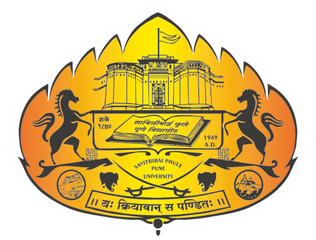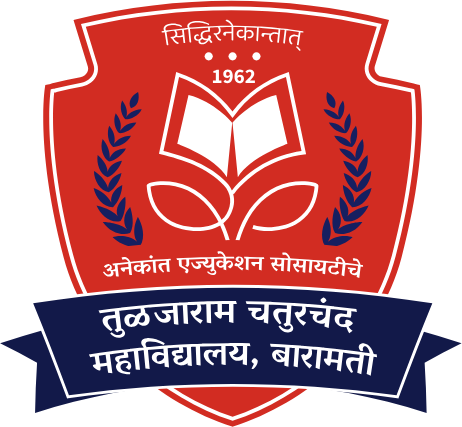 SPPU, Pune
SPPU, Pune







Student Corner
FAQ's
- By Road
One of the best ways to come to Baramati is by bus. Maharashtra State Transport provides daily bus service to Baramati and beyond. Nonstop buses are available from Pune (Swargate Bus Depot) to Baramati and vice versa every half an hour. The first bus from Pune is at 6 am. The fare for the above route is Rs.160/-. Other buses passing via Baramati are also available. Baramati is a 2-hour drive from Pune. - By Train
You can also enjoy the journey to Baramati by train. The nearest junction to Baramati is Daund which is 50 km and Pune is near about 120 km. - By Air
The nearest airport from Baramati is located at Pune. There are various flights connecting Pune to all the major cities of India. You can take a flight to Pune and proceed to Baramati by taxi or bus.
Admission process generally starts as soon as the results get declared for the respective class.
- A student who wants to take admission has to first buy a prospectus for the respective course.(Prospectus can be purchased OFFLINE at GrahakBhandar in College or ONLINE by paying the fee of the prospectus after which the student will receive it through email). EACH PROSPECTUS CONTAINS A USER NAME AND PASSWORD.
- Then the student has to fill the online application form for the respective course by using the User Name and Password given in the prospectus.
- After completing the form student has to PRINT the filled form.
After that student has to submit the printout and necessary documents in the office window. - The documents and printout get verified and student gets a challan no.
- After getting a challan no student has to pay the fee ONLINE ONLY.
- After paying the fee online, the transaction no is verified by the office and student getsan Id-Card at the same time.
- For the courses that are based on a merit list, the student has to first fill the waiting form and after getting shortlisted then he/she can take admission.
Scholarship is provided for all category students for regular courses. For professional courses (B.Sc(Comp.Sci.), BBA, BCA, M.Sc(Comp.Sci.), B.Voc. etc.) the scholarship is provided for S.C. and S.T. students only.
Skills-oriented programs are provided by each department in the academic curriculum. Student can get the benefits of that program to improve their skills.
Placement facility is provided at the department level. There is also a placement cell at the college level which takes care of placements.
At U.G. Level :
- The research projects are compulsory for a few subjects. So the HOD of the Department will allot projects to students.
- The research projects are compulsory for a few subjects. So the HOD of the Department will allot projects to students.
At P.G. Level :
- Research project will be allotted by respective department.
- Research project will be allotted by CIAR for Selected Students.
Each department runs different extra credit courses and students from different department can also join for that course. Also, student can join NSS, NCC, Sports, etc. to get additional credits.
Due to autonomy, each department has re-structured its syllabus according to the industry/ market requirements. So the students passed out from our college can easily get employment.
Autonomy is a functional status given to the colleges by the University Grants Commission and University. It provides greater flexibility towards purely academic development for the upliftment of academic standards and excellence.
The fees charged for traditional BA/BSc/MA/MSc degrees will be according to the parent university norms. But for add-on, additional courses, vocational component, skill improvement programme, etc. moderate separate fees could be charged.
An autonomous college carries a prestigious image for the students and the teachers.
Autonomy reflects our continued efforts for excellence in academic performances, capability of self-governance and enhancement in the quality of education.
Standardisation of college examinations only benefits admission officers in postgraduate programs. It also provides a convenient yardstick for employers to judge prospective employees. Admission officers and employers can be steered toward seeking alternatives of aptitude tests like SAT or GRE. Most importantly, in a competitive education market, each college has a reputation to protect—easy grades give a cheap reputation. Reputation is a more reliable tool than standardisation to sustain the quality of education.
The Parent University (i.e University of Pune) will award the degree to the students evaluated and recommended by the autonomous college. The degree certificates will be in a common format devised by the University. The name of the college will be mentioned in the degree certificates. Autonomous colleges that have completed three terms can confer the degree under their title, with the seal of the university.
Students’ performance is examined internally and externally. Continuous assessment and range of assessment options
- Written Test (not more than one or two for each course as applicable)
- Term Paper
- Journal/Lecture/Library notes
- Seminar presentation
- Short quizzes
- Assignments
- Extension Work
- An Open Book Test
- Mini Research Project by an individual student or a group of students
- Field work / Visit reports
- To ensure fairness and justice to students, various alternatives are adopted in the examination system.
The Exam Committee is responsible for the smooth conduct of the semester examinations, submission of assignments and additional examinations. All matters involving the conduct of examinations, spot valuations, tabulations, preparation of Grade Cards, etc. fall within the duties of the Office of the Controller of Examinations.
The college can offer special need-based short term courses under the departments of the college for the benefit of the students and outsiders can also enroll for them.
© 2025 Tuljaram Chaturchand College. All Rights Reserved.
Design & Developed by PitchTeQ
